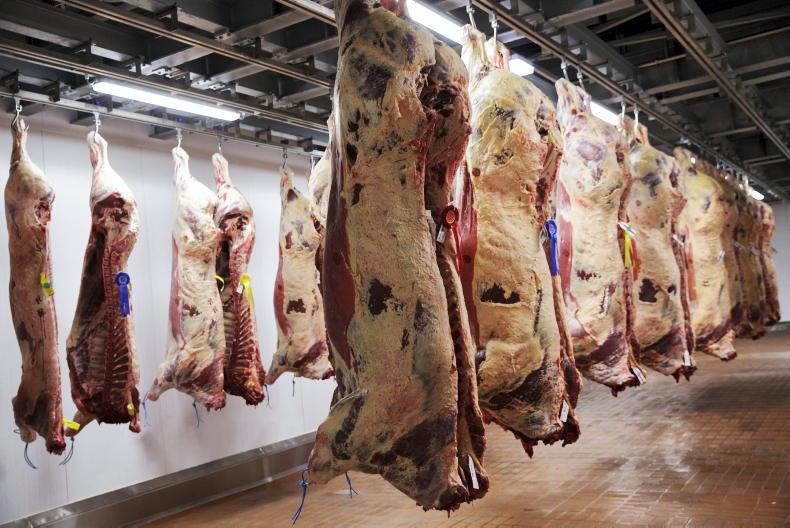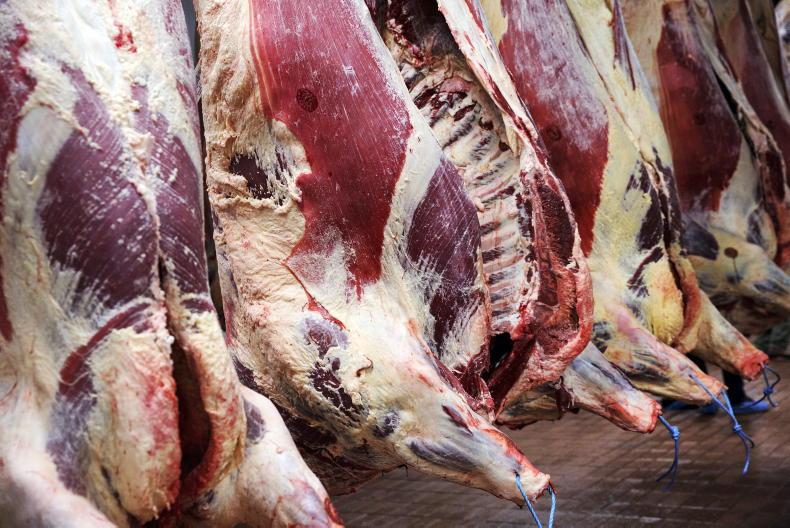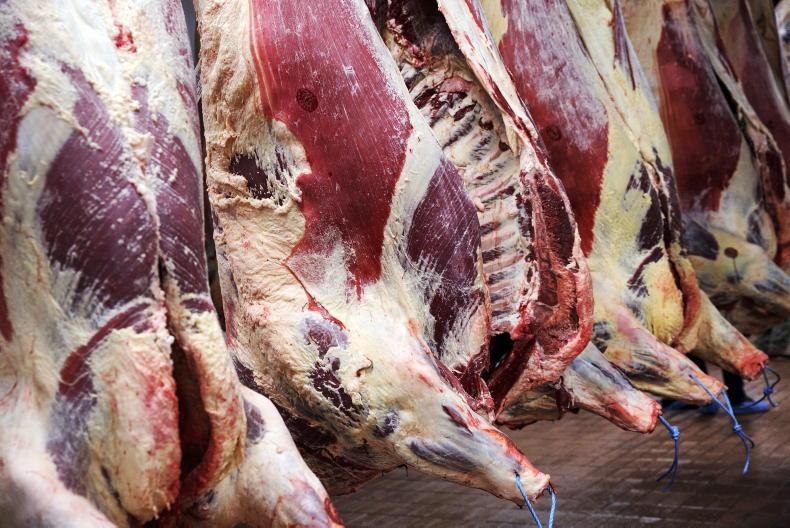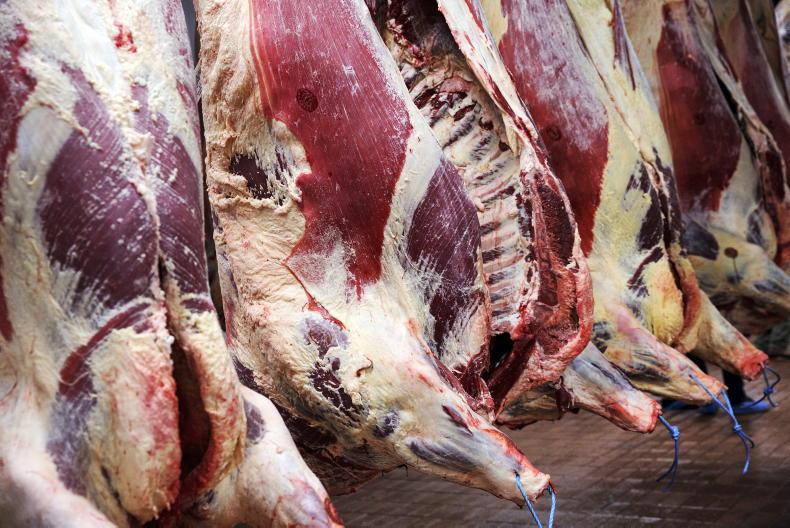The beef trade remains in a steady position this week. Factories did try to flush out some soft sellers at the beginning of the week in talking the trade down and, in some cases, trying to buy bullocks at €5.15/kg base price, but this has been met with a fair degree of resistance on the ground.
Bullocks are being bought at €5.20/kg base price, with heifers moving at €5.25/kg this week.
Numbers of finished cattle continue to be tight, with very few grass cattle coming fit in the south of the country due to the late spring and current shortage in grass supplies.
Cows
Cows are still in big demand, with U grading cows still up at €5.20/kg and R grading cows coming in at €4.70/kg to €4.80/kg.
Poorer-quality cows have actually seen a bigger increase in prices over the last two weeks compared with better-quality cows.
The manufacturing trade continues to be very strong, with hot weather driving demand for burgers.
The European Football Championships, which is due to run until the middle of July, is also driving demand across Europe, with millions of football supporters following the championships.
O+ suckler cows are generally working off €4.50/kg to €4.70/kg, while O grading dairy cows are being bought at €4.50/kg in the main.
P+3 cows are working off €4.20/kg to €4.40/kg depending on weight, age and flesh.
Factory agents and wholesalers continue to pay big money for well-fleshed heavy cows in marts, with over €3/kg being paid over the weekend for well-fleshed continental cows. The mart is still the best place to go with small numbers of cows.
Bulls
Under-24-month bulls are working off a €5.40/kg to €5.50/kg base price for U grading bulls, with many processors willing to pay more for well-fleshed quality bulls.
R grading bulls are coming in at €5.25/kg to €5.35/kg, while O grading bulls are being bought at €5.10/kg to €5.20/kg.
P grading bulls are working off €5.00/kg to €5.05/kg, depending on weight and flesh cover.
Under-16-month bulls are generally working off a €5.20/kg to €5.25/kg base price, with factories a little more anxious for supplies for the rest of this week.
A lot of under-16-month bulls have been flushed out of the system in the last three weeks.
Last week’s kill came in at 30,813 head, an increase of over 1,300 head on the previous week’s kill.
The biggest lift came in the weekly cow slaughter, with an extra 1,034 cows slaughtered. That’s the highest cow kill since the end of February.
Agents are working hard in marts all over the country buying any slaughter-fit cows for direct slaughter.
Increased quotes are also luring out more cows to the market in the last week.
Moving further afield, a number of countries have proposed that the EU delays the introduction of the anti-deforestation law.
The law, which is due to come into effect at the beginning of 2025, would require EU importers of products such as beef, chocolate and other goods to provide proof that the product was not produced on deforested land.
The USA wrote to the EU at the end of May asking for a delay to the rule being introduced. This is predominantly in relation to the export of paper and pulp from the USA to the EU which is worth billions to the USA on an annual basis.
Indonesia and Malaysia, which are the main suppliers of palm oil to the EU, have also urged Brussels to postpone the implementation of the law.
NI comment
Prices are steady in NI, with quotes on 462p/kg (€5.72/kg inc VAT) for U3 animals and deals on 480p to 482p/kg (€5.95 to €5.88/kg) for prime cattle.









SHARING OPTIONS